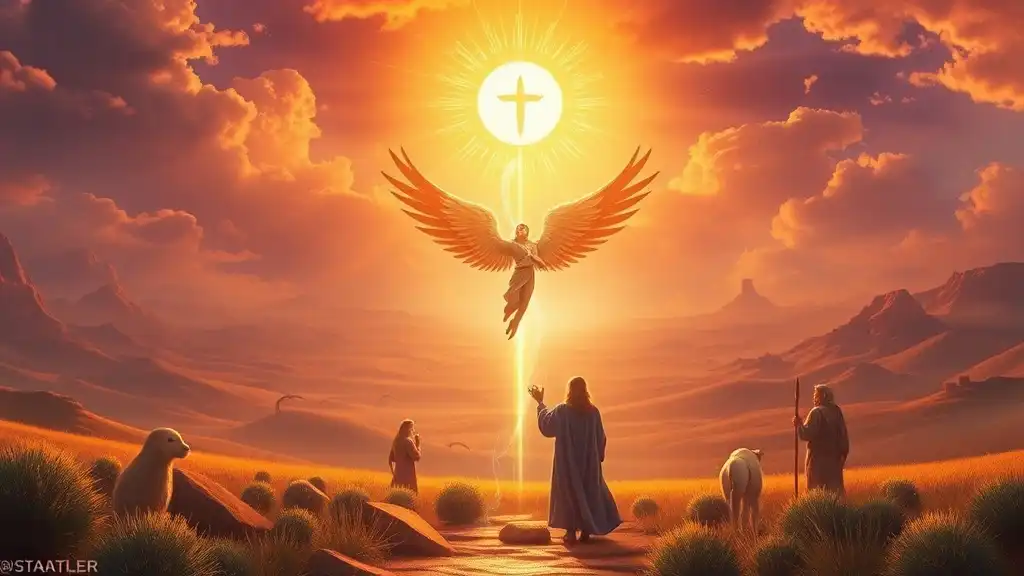The story of Jonah is one of the most captivating narratives in the Bible, blending themes of obedience, mercy, and the complexities of human emotion. Often regarded as a tale of a reluctant prophet, Jonah's journey serves as a profound spiritual metaphor, revealing deep insights about personal calling, transformation, and divine grace.
The Story of Jonah
Background and Context
Jonah's narrative emerges during a time when ancient Israel wrestled with its identity, facing external threats and internal struggles. As a prophet, Jonah was expected to deliver messages from God to guide the people. However, he is best known for his flight from this divine calling, highlighting the universal tension between duty and personal desire.
Summary of Jonah's Journey
The story begins with God's command to Jonah to go to Nineveh, a city notorious for its wickedness, and preach against its immoral practices. Instead of heeding this call, Jonah attempts to escape, boarding a ship bound for Tarshish. This act of defiance sets the stage for the poignant lessons that follow.
As Jonah's ship sails, he faces a violent storm, a powerful representation of the chaos that ensues when one tries to flee from their purpose. With each crashing wave, Jonah grapples not only with the physical threat but also the spiritual ramifications of his decision. The sailors, sensing divine discontent, ultimately throw Jonah overboard, leading to his miraculous rescue by a "great fish."
Inside the belly of the fish, Jonah experiences profound introspection, ultimately repenting for his actions. After three days, he is ejected back onto land, illustrating the transformative nature of hardship. Jonah finally obeys God’s command and goes to Nineveh, resulting in the city’s repentance—a powerful testament to the possibility of redemption even in the most sinful environments.

Symbolism in Jonah's Story
The Whale as a Symbol
The whale, or "great fish," transcends its physical presence to represent deeper spiritual concepts. Its symbolism revolves around transformation and the idea of being “swallowed” by our experiences, only to emerge renewed. Jonah’s time in the fish mirrors the process of grappling with self throughout darkness, leading to an eventual awakening.
Nineveh and Its Importance
Nineveh is not just a city; it symbolizes a world lost to sin and moral decay. Jonah's mission to preach repentance there indicates a powerful truth: no one is beyond the reach of divine mercy. The city's widespread remorse at Jonah’s warning serves as a profound lesson in the shared human capacity for change and the hope that lies within collective repentance.
Jonah's Reluctance
Jonah's initial reluctance mirrors a common human response to spiritual calling. His internal conflict between divine purpose and personal desires speaks to the struggle many face when called to fulfill a life path that challenges comfort zones. This tension illustrates that even chosen messengers of God grapple with doubt, fear, and the weight of expectations.

Spiritual Lessons from Jonah
The Call to Purpose
One of the most profound lessons from Jonah’s story is the importance of recognizing and responding to one’s spiritual calling. Each person is uniquely created for a purpose that transcends their immediate desires. Jonah’s journey serves as a reminder that acknowledging and embracing our calls, though daunting, is essential for personal and collective growth.
The Power of Repentance
The transformation of the Ninevites is a key takeaway from Jonah's journey. Their willingness to listen and change showcases the remarkable power of repentance. In our lives, repentance is not merely about seeking forgiveness, but also about actively committing to change. It emphasizes the importance of humility and the recognition that we can all grow beyond our past mistakes.
Embracing Transformation
The metaphor of Jonah being in the belly of the fish can be likened to life's transformative struggles. Often, periods of discomfort precede significant growth. When faced with adversity, like Jonah, we can choose to view hardships as opportunities for personal evolution. Embracing the process of change can lead us to a more profound understanding of our spiritual selves.

Jonah’s Reflection on Anger and Grace
Jonah’s Anger and God’s Compassion
After Nineveh's repentance, Jonah's angry reaction reveals a dissonance between human emotions and divine compassion. He struggles with the idea that his enemies could be shown mercy. This conflict illustrates a key theme: God’s grace is inclusive, extending beyond human biases and boundaries. Jonah’s feelings remind us of the human tendency to hold onto resentment, and the profound challenge of cultivating empathy for those we perceive as wrongdoers.
Lessons in Forgiveness
Jonah’s story underscores the significance of forgiveness. It teaches us that harboring anger can impede spiritual growth. In letting go of grievances, we align ourselves more closely with divine compassion. By learning to forgive—both others and ourselves—we create space for healing and deeper connections.

Contemporary Applications of Jonah's Message
Finding Spiritual Meaning Today
The relevance of Jonah's story resonates profoundly in today’s world. As we navigate our complexities, we often face the challenge of responding to our own divine call. We can draw strength and inspiration from Jonah's experiences, recognizing that the journey of obedience and self-discovery can lead us to transformative encounters with faith.
Meditative Practices Inspired by Jonah
For those seeking a deeper connection with these themes, meditative practices inspired by Jonah can be beneficial. Engaging in quiet reflection on personal calling, journaling about experiences with forgiveness, or even setting intentions for personal growth can help bring the lessons of Jonah into a tangible, spiritual practice.

Conclusion
The story of Jonah is an intricate tapestry of lessons related to purpose, transformation, and the forgiveness that lies at the heart of spiritual growth. As you reflect on your own journey, consider the ways in which you might embrace the call to your own purpose, acknowledge the power of repentance, and extend grace and forgiveness in your life. Just like Jonah, each of us has a unique path to navigate, filled with potential for enlightenment and deeper spiritual understanding.



















